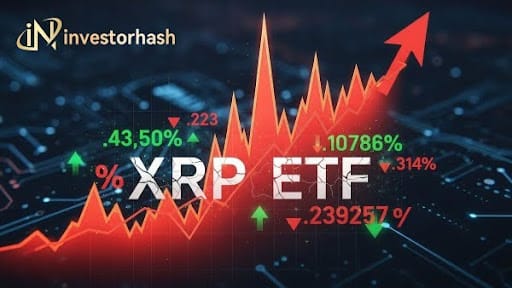Hong Kong Permits Professional Crypto Derivatives Trading

Hong Kong's securities regulator has confirmed plans to introduce digital asset derivatives trading for professional investors as part of a broader strategy to expand product offerings and strengthen the city's position in the global digital asset market. Christopher Hui Ching-yu, secretary for Financial Services and the Treasury, announced the development on June 4, according to China Daily HK. The Hong Kong Securities and Futures Commission stated that priority will be given to sound risk management, with trades conducted in an orderly, transparent and secure manner.
The move comes as Hong Kong prepares to release its second virtual asset policy statement later this year, building on the foundation established in October 2022. The regulator has already approved staking services and authorized virtual asset spot ETFs and futures products as part of its systematic approach to digital asset integration.
Global Derivatives Market Expansion
The crypto derivatives sector has experienced substantial growth, with Shift Markets reporting that annual trading volumes could reach $10 trillion by 2026. Professional and institutional traders represent key target audiences as platforms extend their feature sets with advanced trading tools and derivatives products. EY analysis shows the monthly volume in September 2023 hit $1.33 trillion, significantly exceeding the spot market.
The regulatory environment for crypto derivatives continues evolving globally, with authorities intensifying efforts to bring these expanding markets under established financial oversight. Norton Rose Fulbright notes that Hong Kong's framework restricts virtual asset-related products considered complex to professional investors only, except for a limited suite of products.
Asian Regional Competition
Hong Kong's derivatives expansion occurs amid intensifying competition across Asia's financial centers. Law.asia reports that regulators in Hong Kong, Japan and Taiwan are strengthening cryptocurrency markets by enhancing consumer protection and market integrity. Japan's domestic crypto-asset market shows expansion with registered crypto-asset exchange business providers reaching 32 as of April 2025.
Singapore maintains its position as a regulated crypto hub, with Reuters noting the city-state's role alongside Hong Kong in leading institutional adoption in Asia. The competitive landscape reflects varying approaches, with Hong Kong pursuing investor-centric regulatory frameworks while Singapore emphasizes compliance and accessibility.
Hong Kong has issued nine digital asset trading platform licenses according to Financial Secretary Paul Chan, with eight additional applications under review. This licensing activity demonstrates the territory's commitment to building a comprehensive regulatory infrastructure that accommodates both retail and institutional participants.
Market Implications And Future Outlook
The broader significance of Hong Kong's derivatives approval extends beyond local markets, potentially influencing cryptocurrency adoption across traditional financial institutions. The global digital asset market has surpassed $3 trillion in value with annual trading volumes exceeding $70 trillion, according to SFC data. Institutional participation continues expanding, with 69% of institutional participants planning to increase digital asset exposure according to recent surveys.
Hong Kong's position as China's gateway creates unique opportunities for controlled offshore exposure while maintaining domestic financial stability. The territory's free-trade agreements with ASEAN nations provide strategic access to high-growth markets, particularly Vietnam where crypto adoption rates are projected to reach 30-40% in 2025.
The development reflects broader industry trends toward regulated, transparent crypto derivatives markets driven by institutional demand. Traditional financial institutions increasingly seek exposure to digital assets within compliant frameworks, making Hong Kong's professional investor focus strategically positioned for market growth.
However, skeptics point to potential risks including market volatility, leverage concerns, and regulatory uncertainty. The restricted scope to professional investors limits retail participation, potentially driving some trading activity to offshore platforms with fewer restrictions.
The success of Hong Kong's derivatives framework may influence other Asian jurisdictions considering similar measures. Regional harmonization of crypto regulations appears increasingly likely as authorities recognize the cross-border nature of digital asset markets and the need for coordinated oversight approaches.
Related Reading on BTC Peers
For deeper insights into global cryptocurrency policy developments, readers can explore the Global Bitcoin Policy Index (GBPI) on BTC Peers. This resource provides comprehensive analysis of Bitcoin policy frameworks across major jurisdictions, helping readers understand how regulatory developments like Hong Kong's derivatives approval fit into the broader global context of cryptocurrency regulation and institutional adoption trends.




